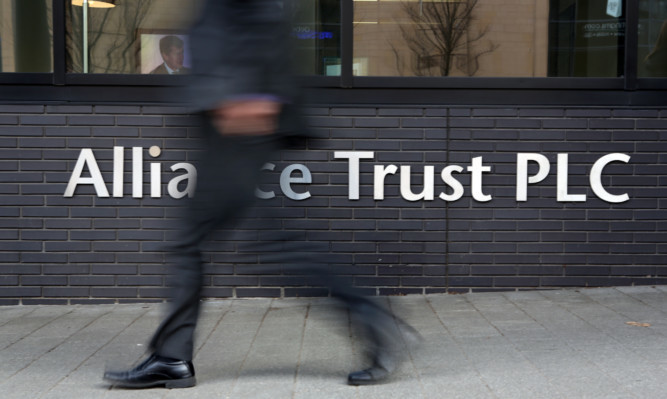Alliance Trust is to wield the jobs axe as part of a major restructuring designed to improve investment performance.
The overhaul announced by chairman Karin Forseke is one of the largest in the company’s 127-year history and follows a failed attempt to see off an attack by a rebel shareholder in the spring.
The trust was given a year’s grace to improve its operational performance after agreeing a truce with Elliott Advisers just hours before the group’s AGM.
The firm has spent the past months consulting with shareholders on how the trust should operate in future.
The Alliance Trust Shareholder Action Group, supported by ShareSoc, welcomes the changes.
“We see this as step one in anevolutionary process,” the group said. “But it is not clear that these changes will quickly make the trust more attractive to investors or ensure that ElliottAdvisers do not come back with more demands for changes in the future.”
Reducing costs is a key element of the plan, with a £6 million savings target laid down for the coming year. The figure will be achieved by reducing the ongoing charges ratio by at least 15 basis pointsto 45bps or less and reductions tothe workforce.
The company declined to say how many jobs will be lost but The Courier understands the figure is likely to be in the tens rather than hundreds.
The new structure will also see an independent board established, consisting entirely of non-executive directors.
Chief executive Katherine Garrett-Cox will remain as CEO of Alliance Trust and a director of the investments arm (ATI), but loses the board seat she has held for the past eight years.
Chief financial officer Alan Trotter has decided to leave after five years.
The reforms will also see independent boards created for the main subsidiaries ATI and Alliance Trust Savings.
The trust will sell off non-core assets including legacy mineral rights and focus its efforts primarily on the global equities market. It has adopted the MSCI All Country World Index as aformal performance benchmark.
Management of the trust’s portfolio will continue to be carried out in house by ATI but there was a warning that future underperformance could lead to the function being outsourced to a third party a move that would inevitably involve further job losses.
Ms Forseke said the past few months had been a “particularly challenging period” for the trust but said she isconfident it would emerge stronger.
“The actions announced today, taken together, represent some of the biggest changes in our history and are designed to further improve shareholder value,” she said.
“They will provide our shareholders with an investment trust which aims to outperform a clear benchmark from a cost base which is among the lowest in the sector.
“In addition we plan to continue topay a progressive dividend and create shareholder value from our investment in two profitable subsidiary businesses.”Analysis: Dramatic day for a firm known for its sense of calmFor an institution noted for doing all in its power to avoid rocking the boat, Thursday was a seismic day, writes Graham Huband.
Alliance Trust has quietly gone about its business for longer than any of us have been alive.
In a very low-key way, the trust grew to be one ofScotland’s great businesssuccess stories.
But that famed Victorian calm has been well and truly shattered in recent years after the trust was twice called out over its performance by activist investors.
The first battle ended in a controversial points-victory over Laxey Partners in 2012.
But this year’s return bout with Elliott Advisers the trust’s largest single shareholder has proven to be a much morebruising affair.
A temporary last-minute peace deal brokered with Elliott ahead of the trust’s AGM in the spring fooled no-one.They wanted their pound of flesh through a board shake-up and now they have got it and then some.
For the trust, the changes are truly monumental.
One blessing amid theuncertainty is that Dundee’s position at the centre of the trust’s world appears secure at least for now as the investment management function remains in-house.
But the news is not so goodfor others.
Katherine Garrett-Cox once the darling of the City will be the first chief executive in the trust’s 127-year history not to sit on the main board. Her star is significantly diminished.
The chief financial officer is headed for the exit door and there will be more following him in the coming weeks as jobs are cut to hit a new multi-million-pound cost-savings targetfor 2016.
A sad irony of the situationis the £6 million the trusthopes to save over the coming year is the same figure it spent on fighting Laxey and Elliott’s bid for change.
While the trust has been cowed and the changesobviously made throughgritted teeth, the re-profilingthat will come in the months ahead could just be themakings of the business forgenerations to come.
Financial services is acut-throat world and thosewho stand still are at risk ofbeing swamped by more fleet-of-foot rivals.
